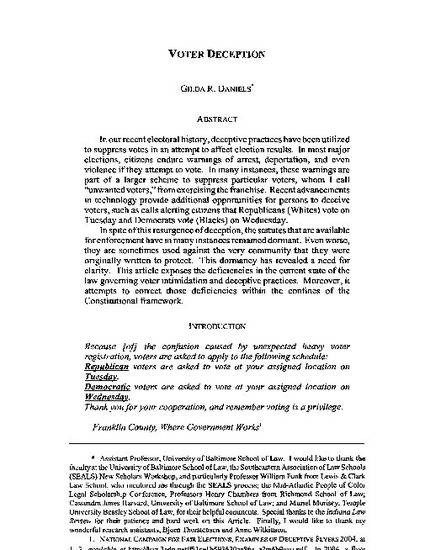
In our recent electoral history, deceptive practices have been utilized to suppress votes in an attempt to affect election results. In most major elections, citizens endure warnings of arrest, deportation, and even violence if they attempt to vote. In many instances, these warnings are part of a larger scheme to suppress particular voters, whom I call “unwanted voters,” from exercising the franchise. Recent advancements in technology provide additional opportunities for persons to deceive voters, such as calls alerting citizens that Republicans (Whites) vote on Tuesday and Democrats vote (Blacks) on Wednesday. In spite of this resurgence of deception, the statutes that are available for enforcement have in many instances remained dormant. Even worse, they are sometimes used against the very community that they were originally written to protect. This dormancy has revealed a need for clarity. This article exposes the deficiencies in the current state of the law governing voter intimidation and deceptive practices. Moreover, it attempts to correct those deficiencies within the confines of the Constitutional framework.
